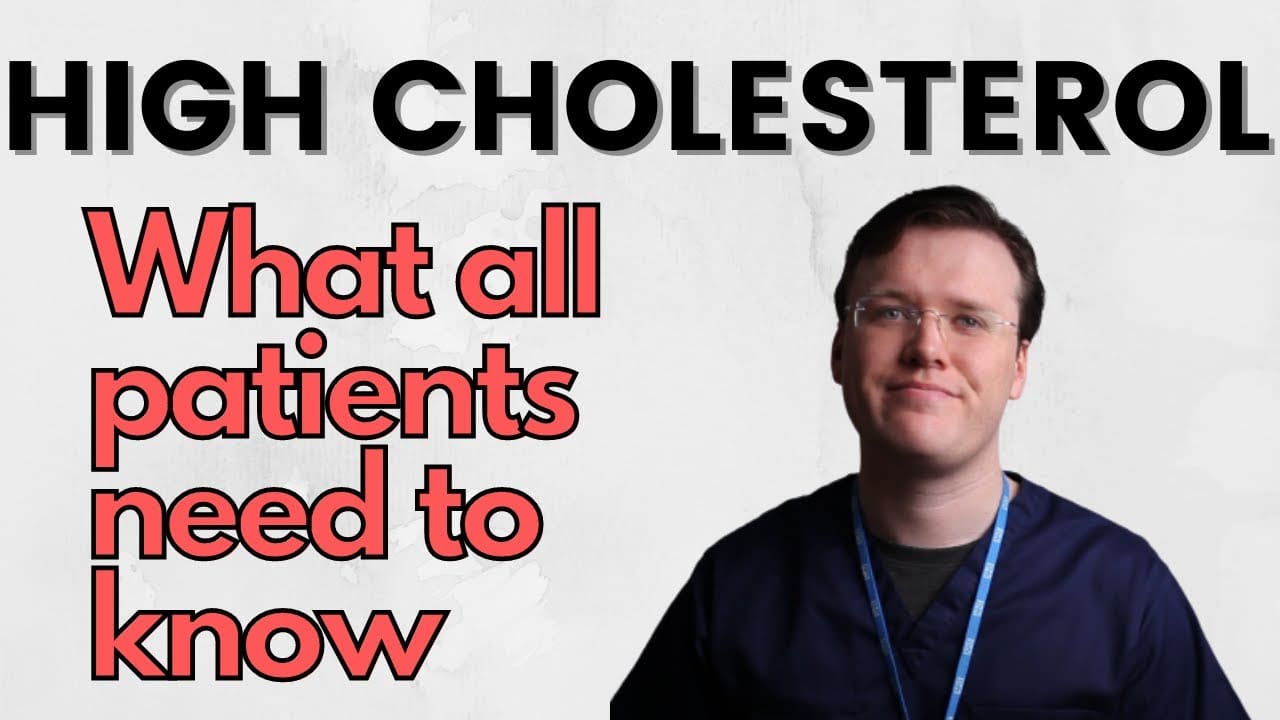Summary:
1. Understanding the role of cholesterol in the body
2. Debunking the myths surrounding high cholesterol
3. The link between high cholesterol and metabolic disease
4. Lifestyle modifications to improve insulin sensitivity and lower cholesterol levels
5. Motivation and mindset for long-term success in managing cholesterol levels
In today’s fast-paced world, health issues such as high cholesterol have become a growing concern for people of all ages. Cholesterol, a waxy substance in the body, is vital in numerous physiological processes. However, when cholesterol levels become imbalanced, it can lead to metabolic diseases and pose significant threats to overall well-being. This article will dive into the fascinating world of high cholesterol, debunk myths surrounding it, explore its connection to metabolic disease, and provide actionable steps to improve your cholesterol levels and overall health. So, let’s get started!
Understanding the role of cholesterol in the body
Cholesterol, often misunderstood as a villain, is essential to our bodies. It plays a critical role in hormone production, digestion, and the formation of cell membranes. Additionally, it acts as a precursor for synthesizing vitamin D and bile acids necessary for fat digestion.
Debunking the myths surrounding high cholesterol
One of the most prevalent myths surrounding high cholesterol is that it is solely caused by consuming foods high in cholesterol. However, our body’s production of cholesterol is a highly regulated process driven by a combination of genetic factors and dietary intake. Therefore, cutting out all cholesterol-rich foods may not necessarily resolve high cholesterol issues.
The link between high cholesterol and metabolic disease
High cholesterol often goes hand in hand with metabolic diseases such as obesity, diabetes, and cardiovascular disease. The intricate relationship between these conditions lies in insulin sensitivity, a measure of how effectively our bodies utilize insulin to regulate blood sugar levels. Insulin resistance, commonly seen in metabolic diseases, not only promotes the accumulation of cholesterol but also leads to inflammation, oxidative stress, and plaque formation, which can raise the risk of heart disease.
Lifestyle modifications to improve insulin sensitivity and lower cholesterol levels
While genetics play a role in cholesterol metabolism, lifestyle modifications can significantly impact cholesterol levels and insulin sensitivity. Regular physical activity, such as aerobic exercises and strength training, helps burn excess calories and promotes insulin sensitivity. Incorporating a balanced and nutrient-rich diet, high in fiber, healthy fats, and low in processed foods, is vital in managing cholesterol levels and overall metabolic health.
Motivation and mindset for long-term success in managing cholesterol levels
Managing high cholesterol requires a commitment to long-term lifestyle changes. However, motivation and a positive mindset can make this journey more enjoyable. Setting realistic goals, celebrating even the smallest victories, and finding a support system can help you stay on track. Remember, every step towards a healthier lifestyle is towards improved cholesterol levels and overall health.
In conclusion, high cholesterol is a complex issue beyond simple dietary choices. Understanding the role of cholesterol in the body, debunking myths, and recognizing its connection to metabolic diseases is crucial in managing cholesterol levels effectively. Lifestyle modifications, such as regular physical activity and a balanced diet, can significantly improve insulin sensitivity and lower cholesterol levels. By embracing a positive mindset and focusing on long-term success, you can take charge of your cholesterol health and enjoy a happier, healthier life. So, start implementing these changes today and take control of your cholesterol journey. You’ve got this!
*****
Source Description
Were you diagnosed with High Cholesterol? British Doctor Dr. Hart-Pinto tells you all you need to know about high cholesterol.
This patient information video on high cholesterol covers your questions; what is cholesterol? Why is high cholesterol bad? What are the symptoms of high cholesterol? How to diagnose High Cholesterol. Can Diet influence cholesterol? Plant sterols, stanols, fish oils, and cholesterol. High cholesterol and reducing cardiovascular risks for heart attack and stroke. Who will need medication? What medications are available for high cholesterol?
#HighCholesterol #Diet #Patientinfo
TIMESTAMPS:
0:00 What is cholesterol & Why is high cholesterol bad?
0:59 What are the symptoms of high cholesterol?
1.05 How to diagnose High Cholesterol.
1:40 Can Diet influence cholesterol?
2:33 Plant sterols, stanols, fish oils, and cholesterol
2:54 High cholesterol and reducing cardiovascular risks for heart attack and stroke
3:09 Who will need medication?
3:27 What medications are available for high cholesterol?
7:41 Outro & Legal Disclaimer
………………….
JHP Medical UK uses stock footage within its videos. We do not believe or wish to imply that individuals identifiable within stock footage suffer from the condition being discussed. If you do not wish to be included in our videos, please contact our team via JHPmedical@gmail.com, and we will remove the footage.
………………….
Medical Lectures and OSCE Videos produced by GMC registered/Certified Doctors. JHP MedicaMedical’ste provides access to online questions, videos, and lecture notes.
Lectures cover definitions, etiology, symptoms, clinical features, management, prognosis, and complications of various medical topics. Also covered are medical statistics, ethics, and law.
Authors:
1. Dr. A. Hart-Pinto MBChB (Hons) BSc (Hons) MRCS
2. Dr. Najeebah Jaunbocus MBChB MRCGP
………………….
Legal Disclaimer
JHP Medical UK contains content generated by our doctors. Content provided via YouTube is for general information purposes ONLY. Information videos are not produced to provide individualized medical advice. Medical education videos on JHP Medical UK are not a substitute for professional medical advice, diagnosis, or treatment. NEVER ignore professional medical advice because of something you have heard here. ALWAYS consult your doctor regarding any concerns about your condition or treatment.
Reasonable effort shall be made to update the information on the JHP Medical UK YouTube channel. However, we make no representations, warranties, or guarantees, whether express or implied, that the content is accurate, complete, or up-to-date.


